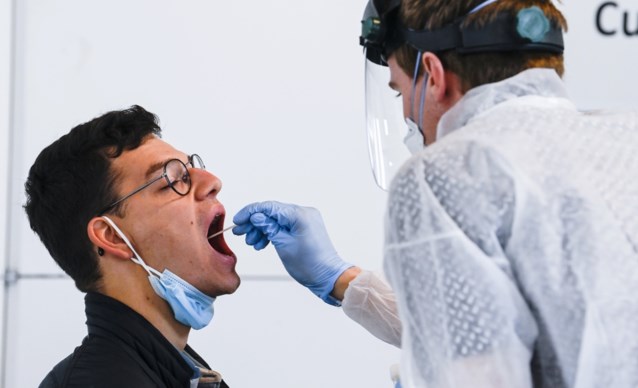Mass weekly testing for coronavirus could be possible, providing there is a shift in strategy towards group testing, experts have said.
Several experts have said they believe it should be possible to test the entire Belgian population every week for Covid-19 after the second wave of the epidemic by carrying out grouped tests, De Standaard wrote Thursday.
"This is a possible strategy to help prevent a third wave, but it involves a political decision," researcher Pieter Libin told the Belga agency.
Related News
- What to expect from Belgium's Consultative Committee
- Covid-19 patients in Belgian hospitals decrease further, deaths rise to 200 per day
- New Liege Covid test could increase capacity by 10,000 a day
Pooling and analysing samples from several people at the same time would allow mass PCR tests to be carried out, Pieter Libin explains. The researcher proposes to carry out tests in groups of 32 people. In the event of a positive pool, in-dividual tests would follow.
According to the calculations of a team of biostatisticians, computer scientists and immunologists from UHasselt, UAntwerpen and VUB, testing all Belgian citizens on a weekly basis is possible if 50,000 PCR samples are pooled and analysed every day.
For this strategy to work, the number of infections in the population must also be reduced to 500 active cases at the same time. In this case, an additional 20,000 PCR tests per day should be sufficient to determine who is actually infected.
A total of 70,000 tests should therefore be reserved for mass screening every day. This is not impossible: the daily number of tests should reach 100,000 by the end of the year, the researchers explain.
The population should also agree to undergo these tests and to isolate themselves if necessary. People belonging to a group that tests positive should be quarantined.
Bundling PCR tests, however, increases the risk of missing a case. According to Libin, the sensitivity of the test is crucial. "We currently have up to 10% false negatives for pools," he says, while hoping to continue experimenting to improve this result.
The Brussels Times

